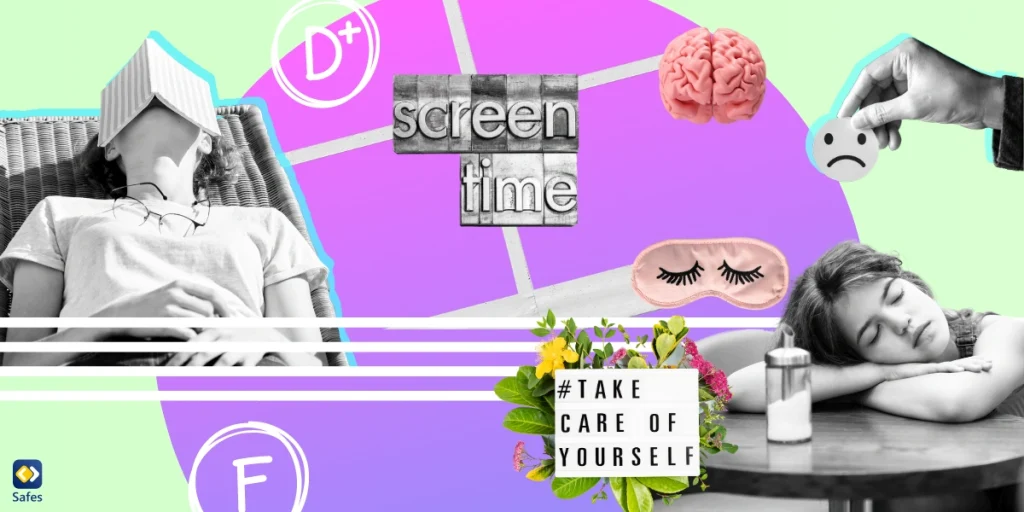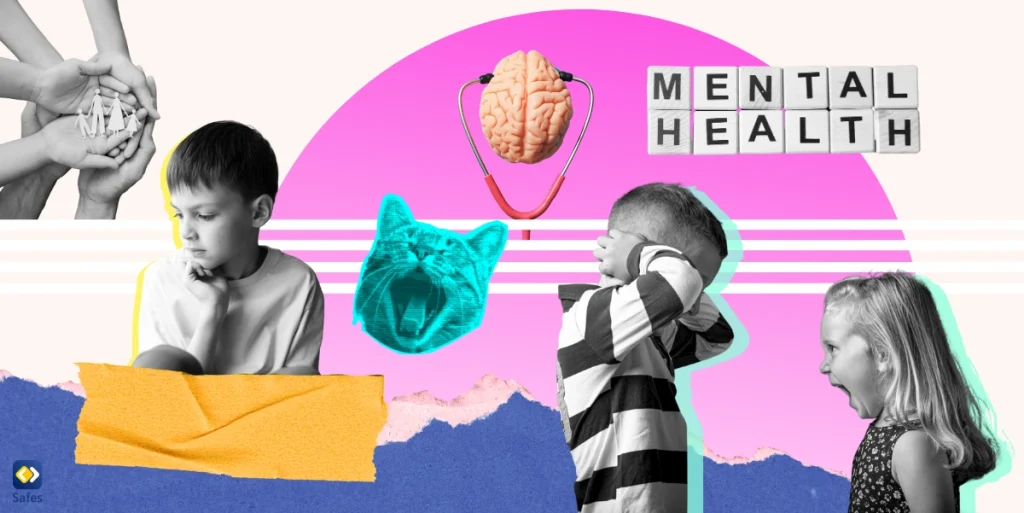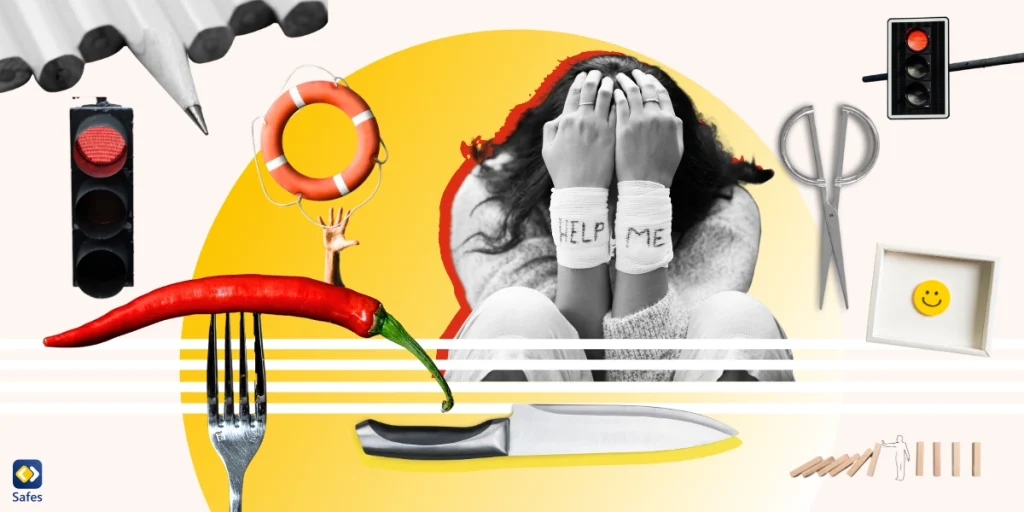Sleep deprivation in teens is a growing concern that has attracted lots of attention in recent years. Teenagers are finding it harder to get enough sleep due to several reasons namely peer influences, use of smartphones before sleeping, and biological shifts.
Download and Start Your Free Trial of the Safes Parental Control App
Sleeplessness can have serious consequences on teenagers’ mental, physical, and emotional health. Some of these effects are long-lasting and can affect teenager’s daily lives negatively.
Parents can play a crucial role in navigating teenage sleep deprivation. Their involvement, guidance, and support can protect teens from the destructive effects of sleep insufficiency.
Keep on reading this blog to learn how many hours of sleep a teenager should get, the effects of sleep deprivation on teenage brains, and the tips to navigate this issue.
Understanding Teen Sleep Patterns
Teenagers may experience substantial biological changes that can affect their sleep patterns totally. The changes in hormones like puberty-related hormones can shift teenagers’ body clocks, making them sleepier or causing insomnia in them. Some of the key natural biological changes that affect teenagers’ sleeping patterns are:
- Melatonin production changes: It is a hormone that regulates your body’s sleep-wake cycle. When it decreases, sleeping becomes difficult. Using some sleep-promoting supplements can solve this problem.
- Circadian Rhythm changes: It dictates sleepiness and alertness in the body. By shifting this in teenagers’ bodies, they tend to be awake.
- Brain changes: With the development of the brain, a teenager’s sleeping cycle undergoes significant changes.
Parents may ask if 6 hours of sleep is good for a teenager or not. Teenagers are between 13 to 18 years old, and the sleeping time varies for each age group of teenagers. Here are general guidelines that show sufficient sleep time for each specific group:
- Ages 13-14: Recommended sleeping time is between 9 to 9.5 hours
- Ages 15-16: Recommended sleeping time is between 8 to 9 hours
- Ages 17-18: Recommended sleeping time is between 7 to 8 hours
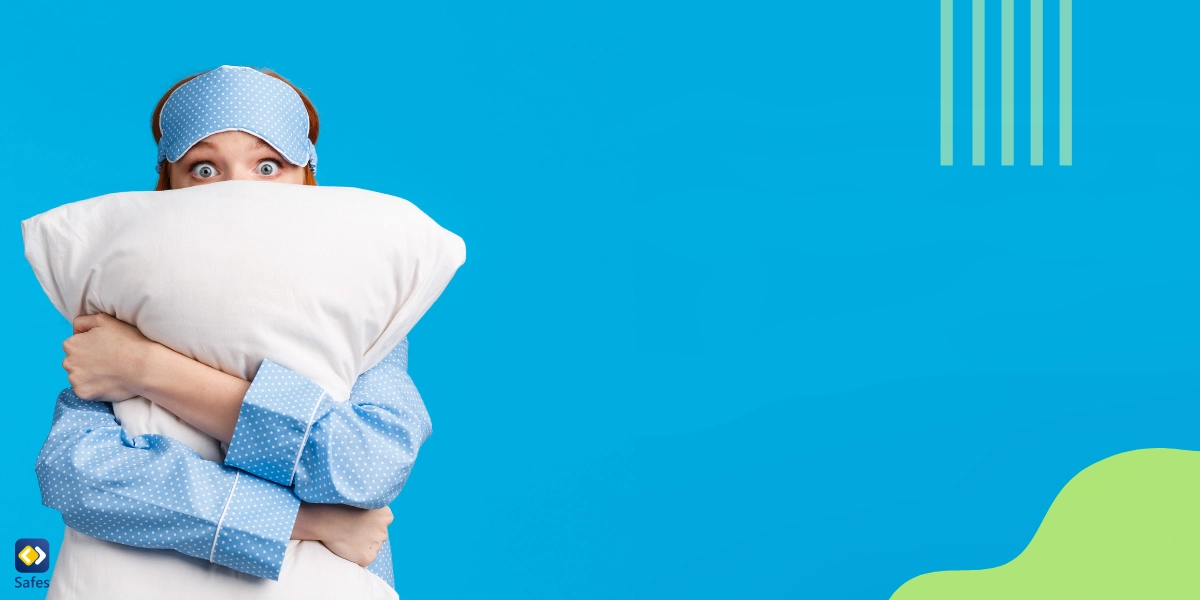
Factors Contributing to Teen Sleep Deprivation
How much sleep do high school students get? According to teenage sleep deprivation statistics, 73 percent of teenagers do not get enough sleep, but what’s the reason? Various factors are involved in sleep deprivation in teenagers. It can be attributed to a combination of biological, social, academic, and technical factors. The following points are some major causes of teen sleep deprivation:
- Biology: It’s the major contributing factor to sleep deprivation. Hormonal changes in teenagers can affect their sleeping duration.
- Homework: Sometimes teens have to stay awake for a long time at night because of the heavy workload of school.
- Stress: Social challenges, stress, and anxiety can disturb teenagers’ sleeping.
- Technology: With the growth of technology, teenagers spend most of their time online. Social media apps and platforms are distractions that keep your teens awake.
The Consequences of Sleep Deprivation
The consequences of not getting enough sleep can be huge. Lack of sleep drains your mental abilities and puts your physical health at risk. If your teen stays up late at night, he feels tired and cranky the next day. It reduces the quality of a teenager’s life and can be a reason for getting some diseases like diabetes and obesity. Some other downsides of insufficient sleep are:
- Cognitive impairment: Sleep deprivation makes teenagers less alert, and they have difficulty multitasking. Therefore, it causes poor academic performance
- Mood changes: Sleep loss can affect people’s moods. It can make a person frustrated, depressed, unmotivated, and angry.
- Wight gain: Chronic sleep deprivation results in obesity and diabetes because it affects the body’s metabolism negatively.
- Daytime sleepiness: When teens don’t get enough sleep, they feel drowsy during the day and have a low level of energy.
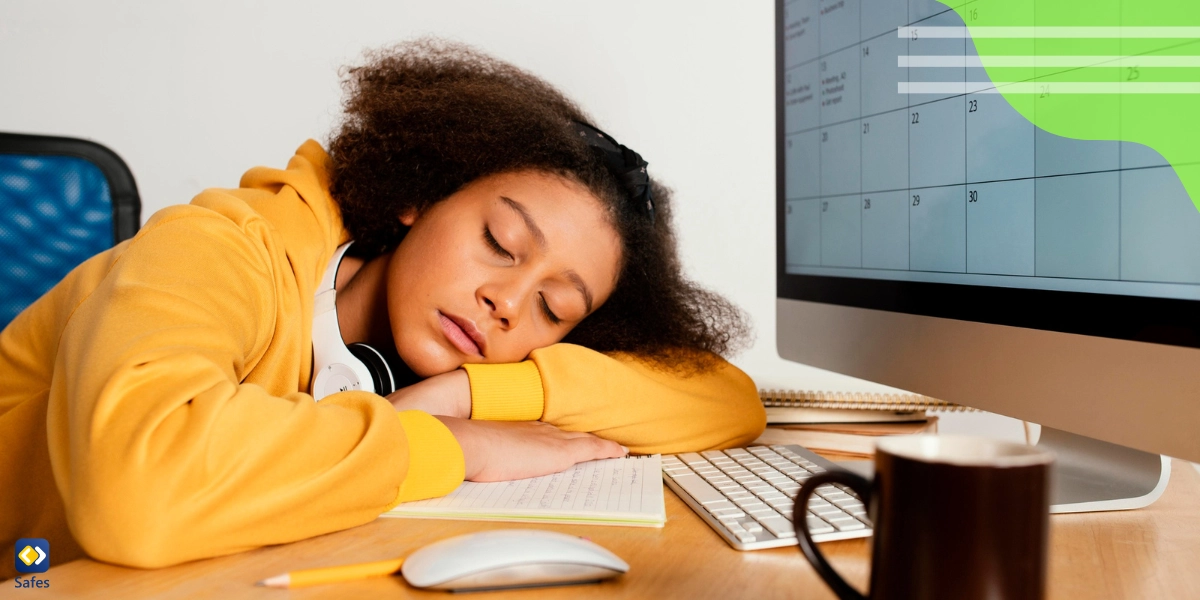
Collaborative Efforts: Parent-Teen Partnerships
Parents should have discussions about the connection between sleep and technology use with their teenagers because it affects teens’ overall well-being and performance.
They can talk about the impact of screen time on sleep quality and the negative effects of technology. The parent-teen partnership in this issue can solve the related problems and improve the quality of teenagers’ sleep.
Having open communication with teens, being a positive example for them, and increasing their digital literacy are tips to engage more with teenagers about sleep deprivation.
Technology as a Solution: Parental Control Apps
We mentioned the main causes of sleep deprivation in teenagers; technology is the major reason for this issue. Nowadays technology plays a crucial role in teenagers’ lives, most teens are active internet users and have accounts in most of the applications and platforms.
Many teenagers use a cell phone in bed, before sleeping which causes headaches for them due to blue light effects. This can have negative effects on their sleeping quality and can cause insomnia for them as well. But what’s the best solution? Parents can install a parental control app as the best way to protect their children from the negative effects of sleep deprivation.
They can use the default parental controls on their child’s device such as Android parental controls or iPhone parental controls. Setting boundaries and limitations on the usage of devices and social media applications can be done by using Safes. Safes is a parental control app available on iOS and Android, that allows you to:
- Limit screen time
- Instantly block all apps
- Set schedules for individual apps
You can start managing your child’s screen time and app usage effectively with Safes’ 14-day free trial.
Conclusion
Overall, sleep deprivation is a common issue among teenagers. We talked about its causes, methods for navigating this issue, and we explained how much sleep teenagers should get. Also, we mentioned the main consequences of loss of sleep in teenagers. The potential consequences are mood changes, weight gain, daytime sleepiness, and loss of alertness.
Your Child’s Online Safety Starts Here
Every parent today needs a solution to manage screen time and keep their child safe online.
Without the right tools, digital risks and excessive screen time can impact children's well-being. Safes helps parents set healthy boundaries, monitor activity, and protect kids from online dangers—all with an easy-to-use app.
Take control of your child’s digital world. Learn more about Safes or download the app to start your free trial today!
